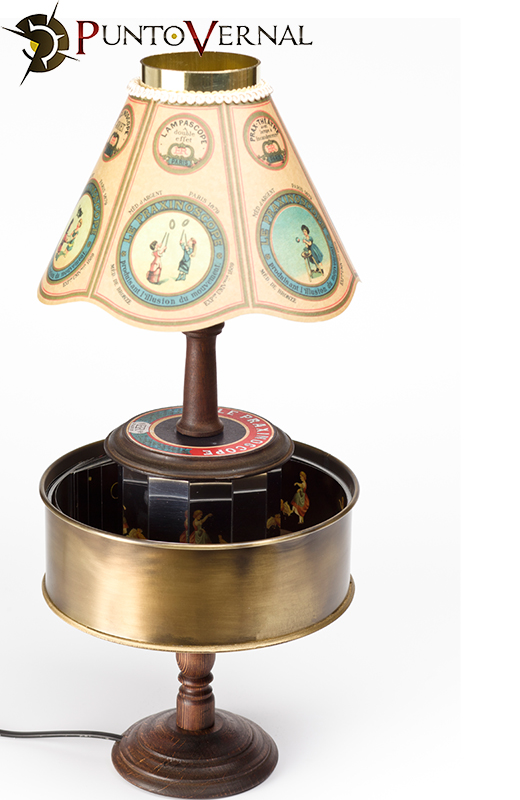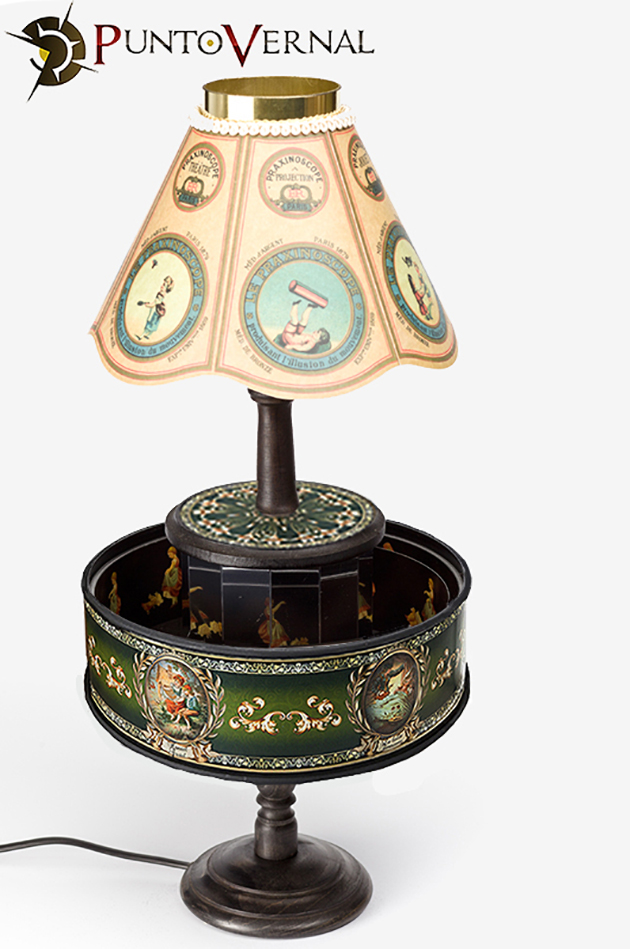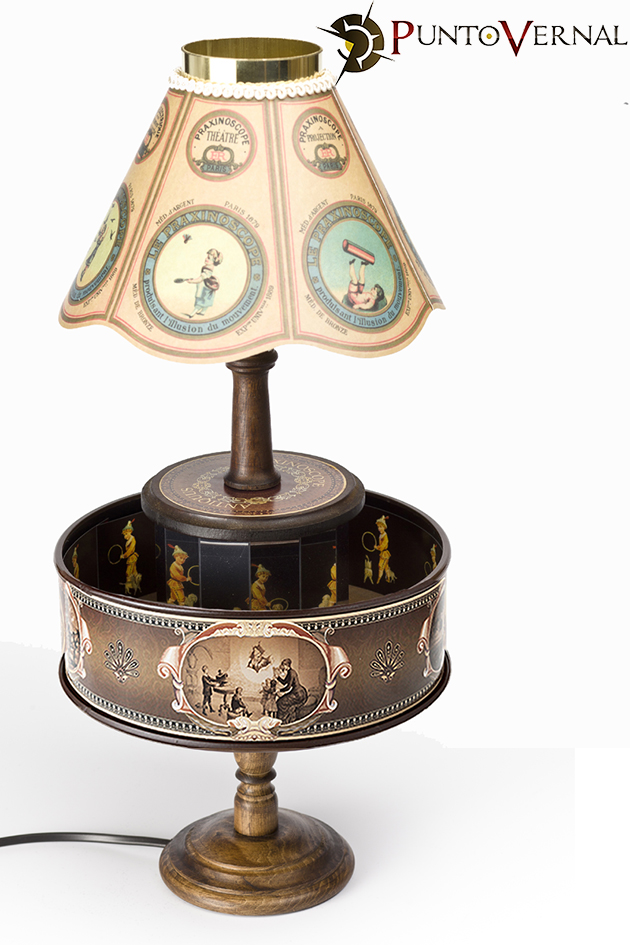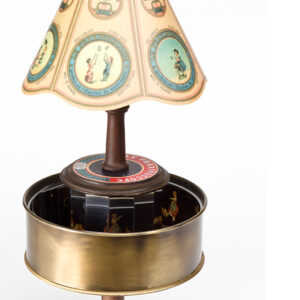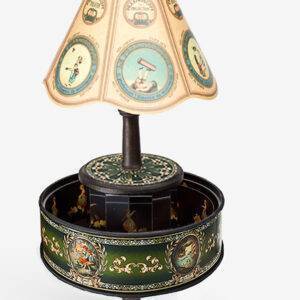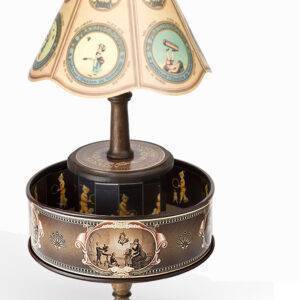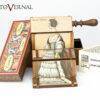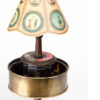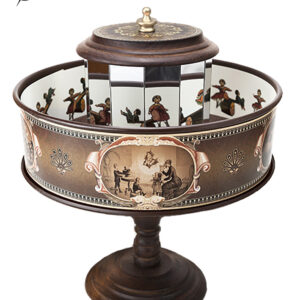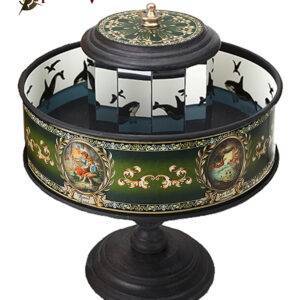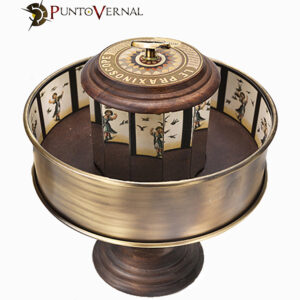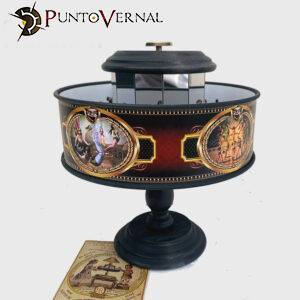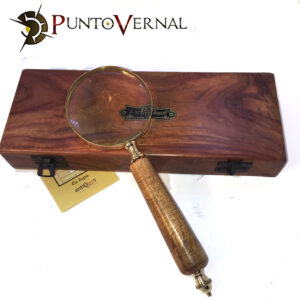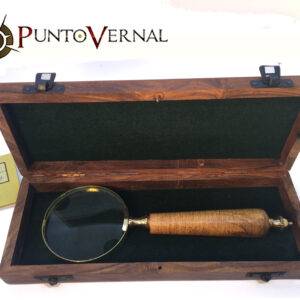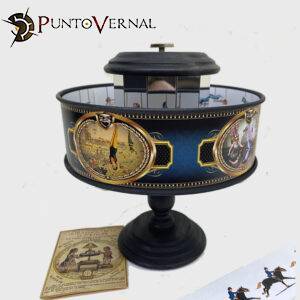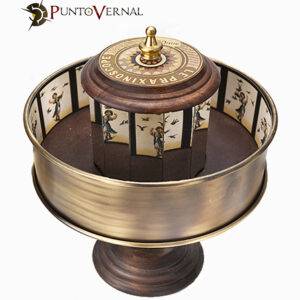LAMP PRAXINOSCOPE
Lamp Praxinoscope. Emile Reynaud invented the praxinoscope in 1877, which in turn was an evolution of the zoetrope invented by George Horner in 1834, since in the praxinoscope the slots are replaced by a ring of mirrors shaped, usually dodecahedron, which allows clear vision direct and more transparent than that provided by the zoetrope, in addition to allowing more spectators to gather around it.
EVOLUTION
Over the years the instrument evolved and in 1880 it occurred to him that in order to continue enjoying the use of this device during the long winter nights, he would incorporate a candle (electricity was not yet used domestically) on the side. top of the instrument.
OUR PRAXINOSCOPES
In our praxinoscope we have logically incorporated a light bulb, but its external appearance is very similar to those manufactured by Reynaud at the end of the 19th century.
It is made of metal and wood and with the exception of the central mirrors, which for child safety should not be made of glass, we do not use any type of plastic component in its production.
It is provided with 45 different animations, reproductions of those of the time, many of them being the same ones that Reynaud used in his devices.
We have three models
– Scenes
– Tales
–Old brass
Measures:
Height: 42 cm
Drum diameter; 21cm
VAT INCLUDED
https://en.wikipedia.org/wiki/Praxinoscope

